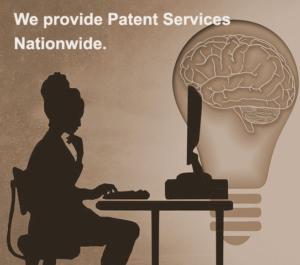WHAT CAN I PATENT?
A U.S. patent for an invention is the grant of a property right to the inventor(s), issued by the U.S. Patent and Trademark Office. The right conferred by the patent grant is, in the language of the statute and of the grant itself, “the right to exclude others from making, using, offering for sale, or selling” the invention in the United States or “importing” the invention into the United States. To get a U.S. patent, an application must be filed in the U.S. Patent and Trademark Office.
Utility patents may be granted to anyone who invents or discovers any new and useful process, machine, article of manufacture, or compositions of matters, or any new useful improvement thereof.
Design patents may be granted to anyone who invents a new, original, and ornamental design for an article of manufacture.
Gulf Coast Intellectual property offers no cost consultations. We can help you decide what type of Patent will best protect your invention. Give us a call at 1-888-919-9328
WHAT CAN BE PATENTED.
The US patent law specifies the general field of subject matter that can be patented and the conditions under which a patent may be obtained.
In the language of the statute, any person who “invents or discovers any new and useful process, machine, manufacture, or composition of matter, or any new and useful improvement thereof, may obtain a patent,” subject to the conditions and requirements of the law. The word “process” is defined by law as a process, act or method, and primarily includes industrial or technical processes. The term “machine” used in the statute needs no explanation. The term “manufacture” refers to articles that are made, and includes all manufactured articles. The term “composition of matter” relates to chemical compositions and may include mixtures of ingredients as well as new chemical compounds. These classes of subject matter taken together include practically everything that is made by man and the processes for making the products.
The Atomic Energy Act of 1954 excludes the patenting of inventions useful solely in the utilization of special nuclear material or atomic energy in an atomic weapon. See 42 U.S.C. 2181(a).
The patent law specifies that the subject matter must be “useful.” The term “useful” in this connection refers to the condition that the subject matter has a useful purpose and also includes operativeness, that is, a machine which will not operate to perform the intended purpose would not be called useful, and therefore would not be granted a patent.
Interpretations of the statute by the courts have defined the limits of the field of subject matter that can be patented, thus it has been held that the laws of nature, physical phenomena, and abstract ideas are not patentable subject matter.
A patent cannot be obtained upon a mere idea or suggestion. The patent is granted upon the new machine, manufacture, etc., as has been said, and not upon the idea or suggestion of the new machine. A complete description of the actual machine or other subject matter for which a patent is sought is required.
NOVELTY AND NON-OBVIOUSNESS, CONDITIONS FOR OBTAINING A PATENT
In order for an invention to be patentable it must be new as defined in the patent law, which provides that an invention cannot be patented if: “(a) the invention was known or used by others in this country, or patented or described in a printed publication in this or a foreign country, before the invention thereof by the applicant for patent,” or “(b) the invention was patented or described in a printed publication in this or a foreign country or in public use or on sale in this country more than one year prior to the application for patent in the United States . . .”
If the invention has been described in a printed publication anywhere in the world, or if it was known or used by others in this country before the date that the applicant made his/her invention, a patent cannot be obtained. If the invention has been described in a printed publication anywhere, or has been in public use or on sale in this country more than one year before the date on which an application for patent is filed in this country, a patent cannot be obtained. In this connection it is immaterial when the invention was made, or whether the printed publication or public use was by the inventor himself/herself or by someone else. If the inventor describes the invention in a printed publication or uses the invention publicly, or places it on sale, he/she must apply for a patent before one year has gone by, otherwise any right to a patent will be lost. The inventor must file on the date of public use or disclosure, however, in order to preserve patent rights in many foreign countries.
Even if the subject matter sought to be patented is not exactly shown by the prior art, and involves one or more differences over the most nearly similar thing already known, a patent may still be refused if the differences would be obvious. The subject matter sought to be patented must be sufficiently different from what has been used or described before that it may be said to be non-obvious to a person having ordinary skill in the area of technology related to the invention. For example, the substitution of one color for another, or changes in size, are ordinarily not patentable.
WHAT CAN BE PATENTED –
Utility patents are provided for a new, non-obvious and useful:
- Process
- Machine
- Article of manufacture
- Composition of matter
- Improvement of any of the above
Note: In addition to utility patents, encompassing one of the categories above, patent protection is available for (1) ornamental design of an article of manufacture or (2) asexually reproduced plant varieties by design and plant patents


